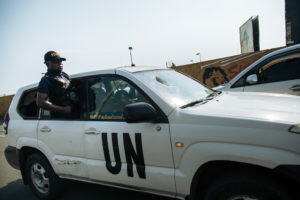
Africa and the ‘grey market’
February 8, 2020Arms brokering or inter-mediation is a commercial activity within the international arms trade that is difficult to regulate. Arms brokers often operate transnationally, so often escaping or avoiding national trade controls in their home countries and the countries where transactions have taken place. Their transnational operations also create “grey” markets, which sometimes fuel illicit markets.

Arms Trade Bulletin November – December 2019
January 17, 2020THE CASE FOR ON-SITE INSPECTIONS South Africa has decided to block arms exports to Saudi Arabia, United Arab Emirates, Oman and Algeria after these countries refused to allow South African officials to inspect their facilities to verify compliance with the South African National Conventional Arms Control Act and South African National Conventional Arms Control Regulations. The clause in the end-us
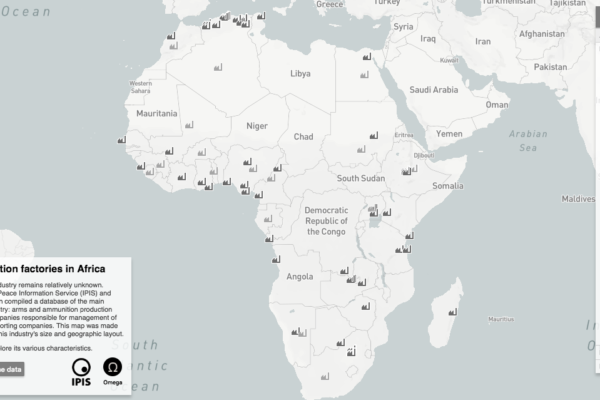
Defence-related companies in Africa
January 1, 2020Africa’s domestic defence industry remains relatively unknown. Therefore, the International Peace Information Service (IPIS) and Omega Research Foundation have compiled a database of the main entities comprising this industry, including companies that manufacture, assemble or maintain: arms and ammunition; aeronautical components; vehicles; as well as importing and management companies. This data
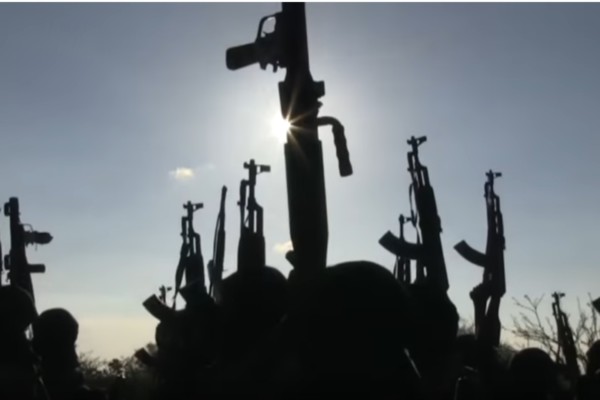
Arms Trade Bulletin September – October 2019
November 22, 2019EDITORIAL “The Kurds ‘didn’t help us’ in Normandy” On 8 October the invasion of northern Syria by Turkey began with air strikes on the positions of the Syrian Democratic Forces (SDF). This military offensive came after a telephone call between president Trump and president Erdogan on 6 October. Trump had agreed to withdraw U.S. troops from northern Syria. The U.S. media speculate that Trump’s will
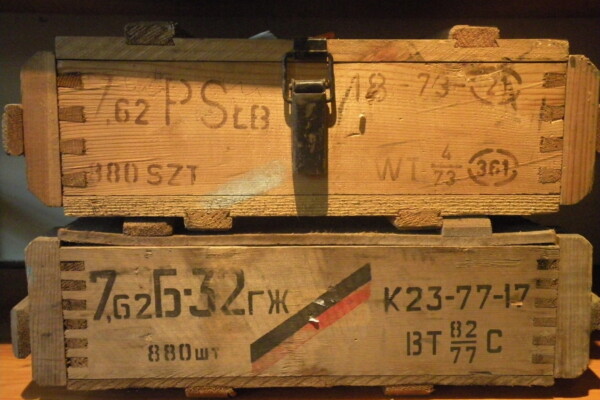
Arms Trade Bulletin July – August 2019
September 10, 2019Gender-Based Violence and Arms Transfer Controls – is it still just talk and no real action? The Fifth Conference of States Parties (CSP5) to the Arms Trade Treaty was being held in Geneva between 26th and 30th August 2019. The theme of CSP5 was gender and gender based violence (GBV), which is a very widespread problem worldwide, fuelled as it is by dominant cultures that equate masculinity with t
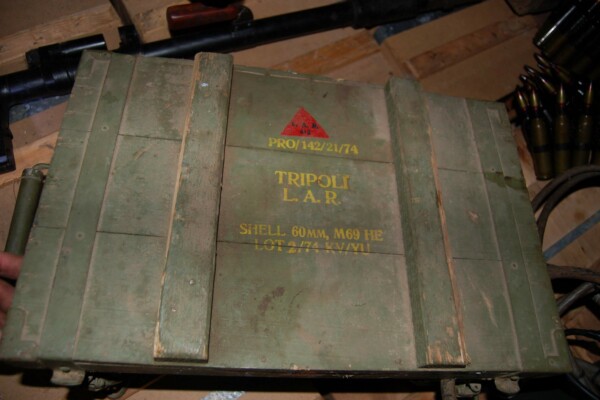
Arms Trade Bulletin May – June 2019
July 19, 2019Arms proliferation still undermining peace prospects in Libya The chaos within Libya has given rise to a score of armed groups. Porous borders and the cross-border proliferation of arms and ammunition enables these armed groups to engage in a wide variety of illegal activities, which in turn undermine peace and security in Libya and the neighbouring countries. Weapons from Libya’s stockpile
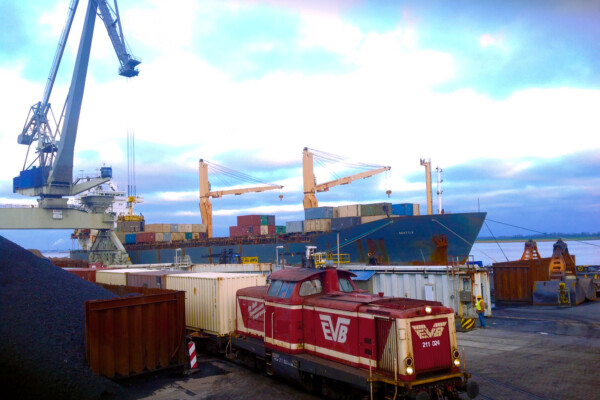
Anti-Diversion Measures. Real-Time Locating Systems
May 20, 2019Diversion is largely a self-inflicted problem that stems from negligence by states, militaries, and civilians (Small Arms Survey, 2008). The illicit trade of small arms and light weapons remains a serious problem internationally and in many countries. To prevent the illicit trade States call for responsible arms export control systems to be put in place. One solution is to prevent diversion, mostl

Arms Trade Bulletin March-April 2019
May 7, 2019UK arms supplies to Saudi Arabia – a view from London “This is the fourth anniversary of the latest stage of a terrible conflict. Britain will do everything possible to ensure that Yemen’s people do not have to suffer a fifth.” These were the words of the Foreign Secretary, Jeremy Hunt in March 2019, on the fourth anniversary of the Saudi-led bombing of Yemen. That same day, Saudi-led forces bom
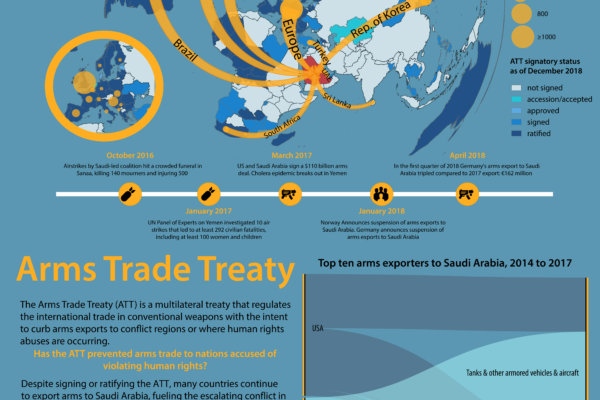
Arms Trade Bulletin – December 2018 – February 2019
March 1, 2019STOP ARMING YEMEN THE VIEW FROM PARIS By Benoît Muracciole and Jean Claude Alt for ASER All parties involved in the war in Yemen continue to plunge the population into what the United Nations Secretary General has denounced as “the planet’s worst humanitarian crisis.” One estimate put the death toll at nearly 60,000 since 2016. Hostilities between the Saudi Arabia-led Coalition and the Houthi and
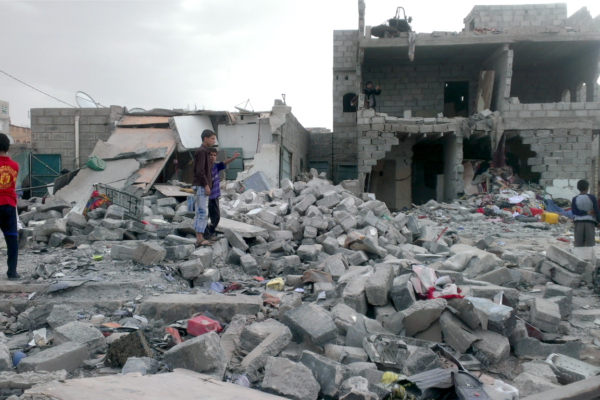
Arms Trade Highlights October-November 2018
November 20, 2018EDITORIAL No Common Position By Frank Slijper – PAX The murder of journalist Jamal Khashoggi in the Saudi consulate in Istanbul in October put the Saudi royal family under more pressure than the immense human suffering in Yemen largely caused by a coalition led by Saudi Arabia and the United Arab Emirates (UAE). Especially for Yemenites, the public outcry after Khashoggi’s killing is a cynical co

Arms Trade Highlights July-September 2018
October 26, 2018“A high rate of access to firearms results in a high rate of intentional deaths with firearms (e.g. homicides and suicides)”. That is the conclusion of a new study on “Global Mortality from Firearms, 1990-2016” in the Journal of the American Medical Association. The research was done by the Global Burden of Disease 2016 Injury Collaborators at various universities and research centres. The authors
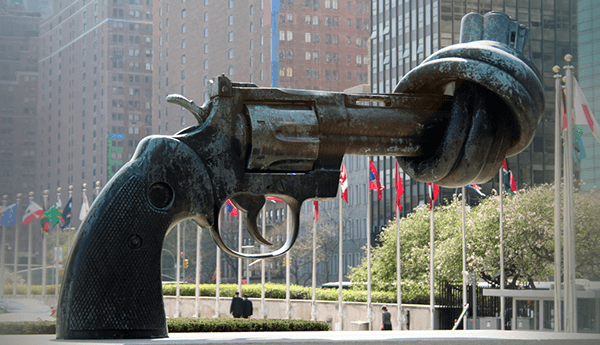
E-learning: The Arms Trade Treaty
September 7, 2017In June 2017, IPIS launched its e-learning digital education package to support the early ratification and effective implementation of the Arms Trade Treaty. The Arms Trade Treaty (ATT) was adopted by the UNGA on 2 April 2013 and entered into force on 24 December 2014. There are currently 92 States Parties and 130 Signatories. Implementation of the Treaty is the responsibility of States Parties,
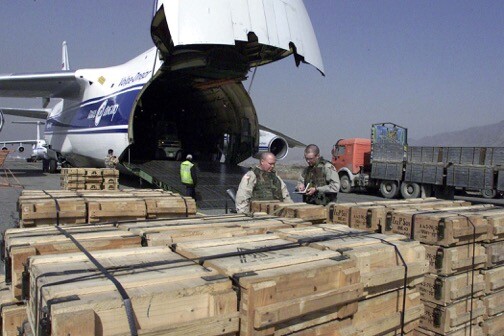
Surplus and Illegal Small Arms, Light Weapons and their Ammunition: the consequences of failing to dispose and safely destroy them
August 11, 2017This joint report by IANSA and IPIS documents recent failures in some countries across world regions to properly dispose of and destroy excess small arms and light weapons (SALW), and their ammunition. It illustrates the different ways that excessive, poorly secured, weapons, especially firearms and ammunition, leak out into the hands of abusers and to those unauthorised to trade and use them, and
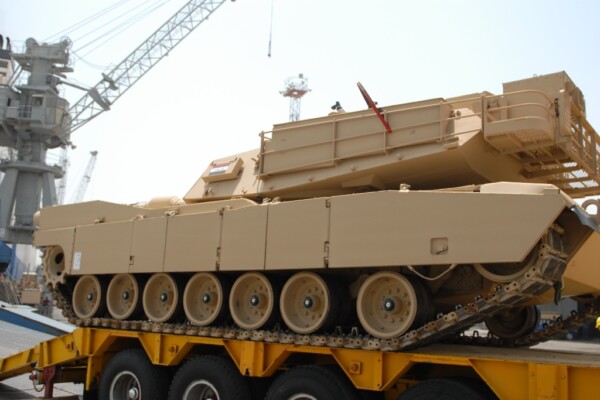
Fatal Freight: Ships, Guns and Human Rights Abuses
June 12, 2017TransArms and IPIS undertook a thorough research of the responsibilities of states and companies involved in the transfer of military equipment by sea under customary international law. The maritime transport is by far the main modality for the transfers of military equipment and commodities. The report considers cases of irresponsible shipments of arms and military commodities to countries with
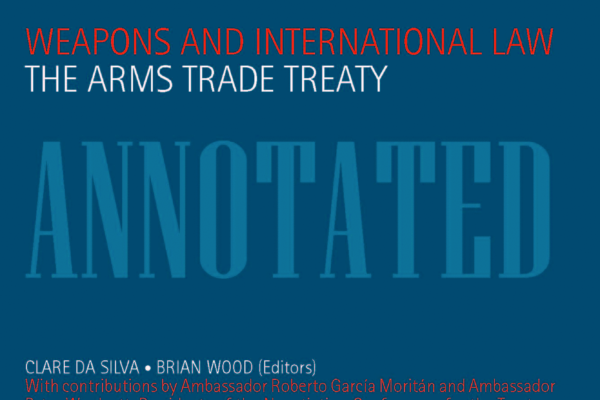
Weapons and International Law: the Arms Trade Treaty
August 19, 2015IPIS is pleased to announce its contribution to a new book on the Arms Trade Treaty published by Larcier. Weapons and International law: The Arms Trade Treaty gives a thorough legal and practical analysis of this important new legal instrument to regulate the global trade of the most commonly-used conventional arms. Amongst our IPIS personnel, Brian Wood has co-edited the book, co-authored the key

Informal Expert Group Meeting, United Nations Institute for Disarmament Research (UNIDIR), Vienna, 22–23 April 2015
April 25, 2015Between 22–23 April 2015 IPIS was invited to participate in a two-day informal expert group meeting for UNIDIR’s project “Examining Options and Models for Harmonization of End Use/r Control Systems” (http://www.unidir.org/programmes/process-and-practice/examining-models-for-harmonization-of-end-use-r-control-systems). The objective of the informal expert meeting was to review common positions on p
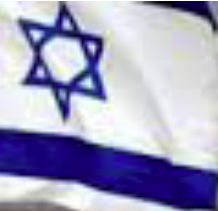
Carburante Usa ai jet israeliani
August 4, 2014Download in pdf or open with issuu reader. http://issuu.com/ipisresearch/docs/carburante_usa_ai_jet_israeliani
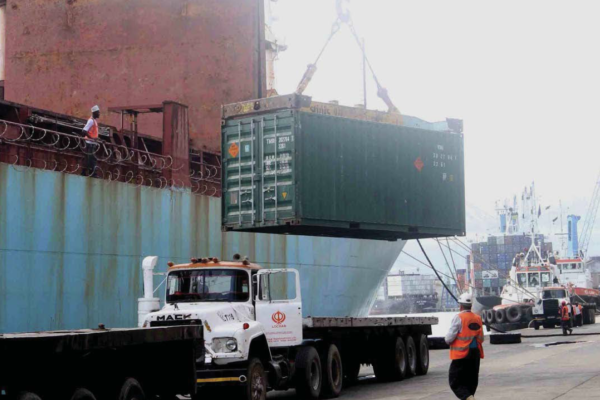
Supply Chains and Transport Corridors in East Africa
June 1, 2014Transport infrastructure plays a key role in boosting a country or region’s economic development. IPIS and TransArms have ascertained on several occasions that the underdevelopment or degeneration of transport infrastructure is a problematic issue across a number of African countries and regions. This report analyses the current logistics situation in Eastern Africa, and the logistic challenges fa

IPIS Insights: Pentagon Accidentally Arms Al Qaeda Affiliate
February 20, 2014A confidential report to the UN Security Council last week revealed that some of the weapons and ammunition supplied to the Somali Transitional Federal Government (TFG) forces appears to have been diverted to the Al Qaeda affiliate known as Al Shabaab. It seems clear that at least some of the weapons and ammunition so diverted were paid for by the US Government directly – through cash deliveries –
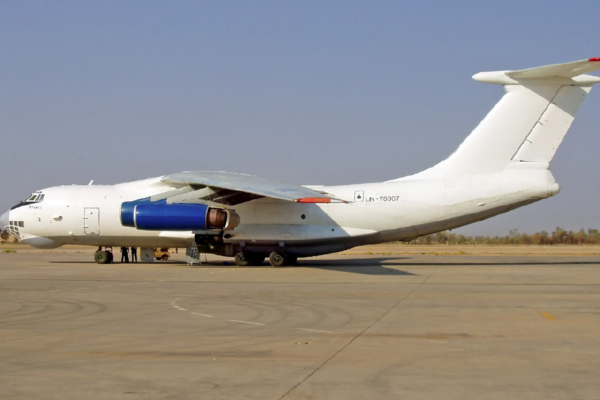
Ambushed in Bangkok? The U.N. Panel on North Korea and the case of the IL-76 “4L-AWA”
November 19, 2013This new IPIS/Transarms report explains why the conclusion of the latest United Nations report on North Korea sanctions about an arms flight grounded in Thailand is not supported by facts, but based on a misalliance of wrong and misleading information gleaned both about the cargo aircraft. its flight and the entities involved, together with erroneous interpretations of standard aviation practices

